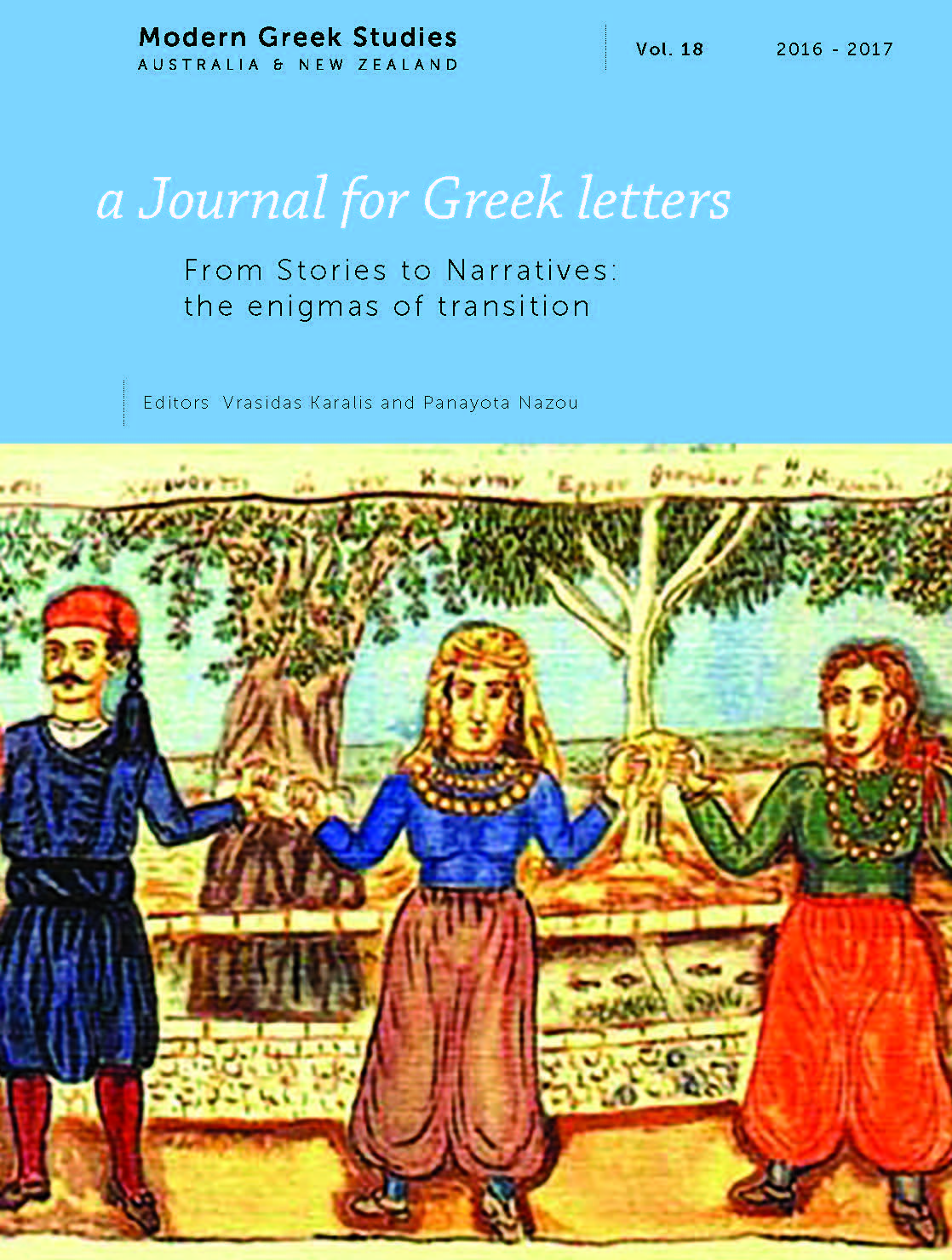Friends in Crisis: Anzacs and Hellenism
Abstract
Across numerous conflicts in the first half of the 20th century, Australians and New Zealanders were at the side of Hellenism: World War One, the Asia Minor Campaign (1919-1922), and the relief efforts after the Hellenic, Armenian and Assyrian Genocides. Beyond their battlefield record, these Anzacs and others from the Antipodes provided substantial practical and moral support for a people going through successive major crises. 2014 marked the Centenary of the outbreak of World War One, and the commencement of four years of commemorative activity to mark a series of centenaries related to Australia and the Great War. Across numerous conflicts in the first half of the 20th century, Australians and New Zealanders were at the side of Hellenism: World War One, the Asia Minor Campaign (1919-1922), and the relief efforts after the Hellenic, Armenian and Assyrian Genocides. Beyond their battlefield record, these Anzacs and others from the Antipodes provided substantial practical and moral support for a people going through successive major crises. The crises that conflict triggered within Hellenism present some stark parallels with the Crisis within the Hellenic Republic since 2010, and some lessons unlearned. With a pro-British elected Prime Minister (Eleutherios Venizelos) and a pro-German monarch (King Konstantinos), the Hellenic Kingdom spent the years of World War One mired in a deep political and social crisis, following the triumphs of the Balkans Wars of October 1912-February 1913. The ideological and strategic chasm between the two men was a major contributing factor to the loss of millions of lives in the Genocide of the Hellenes as well as the loss of territories in Thrace and Anatolia promised to the Hellenic state by the victorious Entente powers. Just as the crisis which has wracked the Helladic state since 2010, the period 1916-1926 was as much about social and economic strategies as it was about political ideologies. Throughout the period, Australians and New Zealanders sacrificed time, effort, money, property and, sometimes, their very lives, in order to reach out to people on the other side of the world who were in desperate need. Their experiences provide a very different perspective on the tradition of Australian humanitarianism and the historiography of Hellenism in crisis. The response to footage of natural disasters such as the Indian Ocean earthquake and tsunami of 2004 is a recent example of Antipodean generosity to human beings in need. The inhabitants of Terra Australis (the ‘Great South Land’) and Aotearoa (the Land of the Long, White Cloud) were disproportionately generous. The stories of individual Australians and New Zealanders provide powerful testament to the ability of individuals to change the course of history. The involvement of Anzacs, their families and associates ‘un-frame’ Hellenic history by re-integrating it into its international context. From 1914 the authorities in the Ottoman Turkish Empire implemented a plan of unprecedented forced demographic change. Known today as the Genocides of the Hellenes, Armenians and Assyrians, the plan called for the physical elimination of the indigenous non-Muslim populations of the Empire as the only means of securing their state’s territorial integrity.
